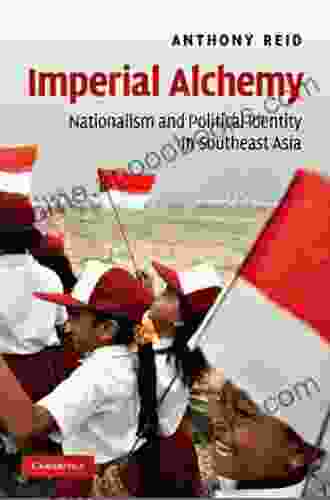
The political landscape of Southeast Asia is a kaleidoscope of diverse nations, each with its own unique history, culture, and path to nationhood. In "Nationalism and Political Identity in Southeast Asia," Dr. Emily Chan offers a comprehensive and insightful analysis of the complex interplay between nationalism and political identity in this vibrant region.
4.6 out of 5
| Language | : | English |
| File size | : | 1682 KB |
| Text-to-Speech | : | Enabled |
| Screen Reader | : | Supported |
| Enhanced typesetting | : | Enabled |
| Word Wise | : | Enabled |
| Print length | : | 266 pages |
| Lending | : | Enabled |
| X-Ray for textbooks | : | Enabled |
Drawing on years of research and extensive fieldwork, Dr. Chan examines the historical roots of nationalism in Southeast Asia, from the colonial era to the post-colonial present. She explores how different forms of nationalism have shaped political identities, influenced nation-building processes, and contributed to regional dynamics.
A Journey Through National Identity
"Nationalism and Political Identity in Southeast Asia" takes readers on a journey through the diverse national identities of the region. From the vibrant pluralism of Indonesia to the enduring monarchy of Thailand, Dr. Chan analyzes the factors that have shaped each nation's unique sense of self.
She explores the role of ethnic diversity, cultural heritage, and political ideologies in the formation of national identities. She also examines how these identities have evolved over time, influenced by factors such as globalization, migration, and regional cooperation.
The Impact of Colonialism and Post-Colonialism
Colonialism has had a profound impact on the political development of Southeast Asia. Dr. Chan examines how colonial powers imposed their own political and economic systems on the region, and how these systems shaped the development of nationalist movements.
She also explores the challenges faced by Southeast Asian nations in the post-colonial era, as they sought to build new political identities and establish their place in the global community.
Challenges and Opportunities in a Globalized World
In the 21st century, Southeast Asia is facing new challenges and opportunities in a globalized world. Dr. Chan examines how globalization is affecting national identities and political landscapes in the region.
She discusses the rise of regionalism and the growth of transnational communities, as well as the challenges posed by ethnic conflict and political instability. She also explores the ways in which Southeast Asian nations are responding to these challenges and shaping their future in a changing world.
A Valuable Resource for Scholars and Policymakers
"Nationalism and Political Identity in Southeast Asia" is an essential resource for scholars and policymakers interested in the region. It provides a wealth of insights into the complex political landscapes of Southeast Asia and the evolving sense of nationhood in the region.
With its comprehensive analysis and rich historical detail, this book will help readers understand the challenges and opportunities facing Southeast Asia in the years to come.


























































































